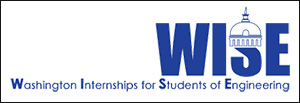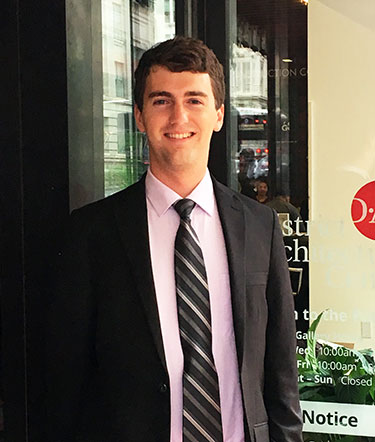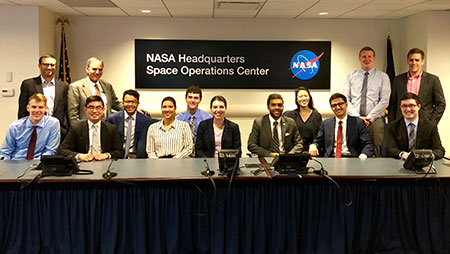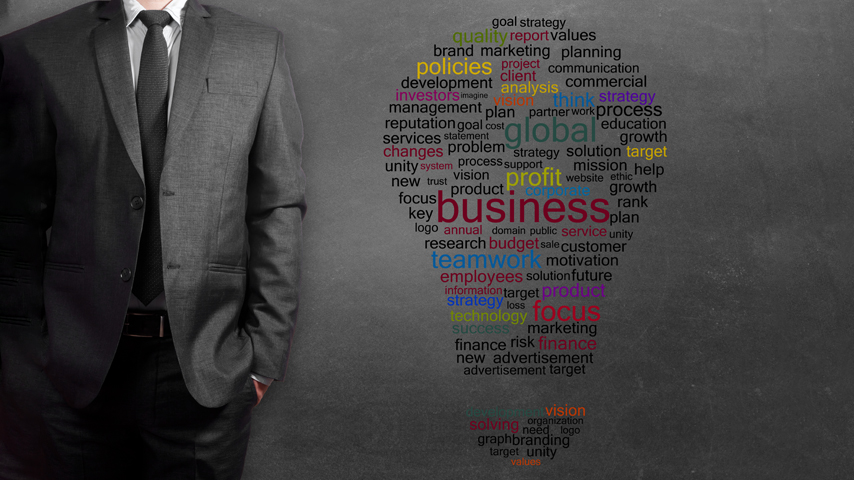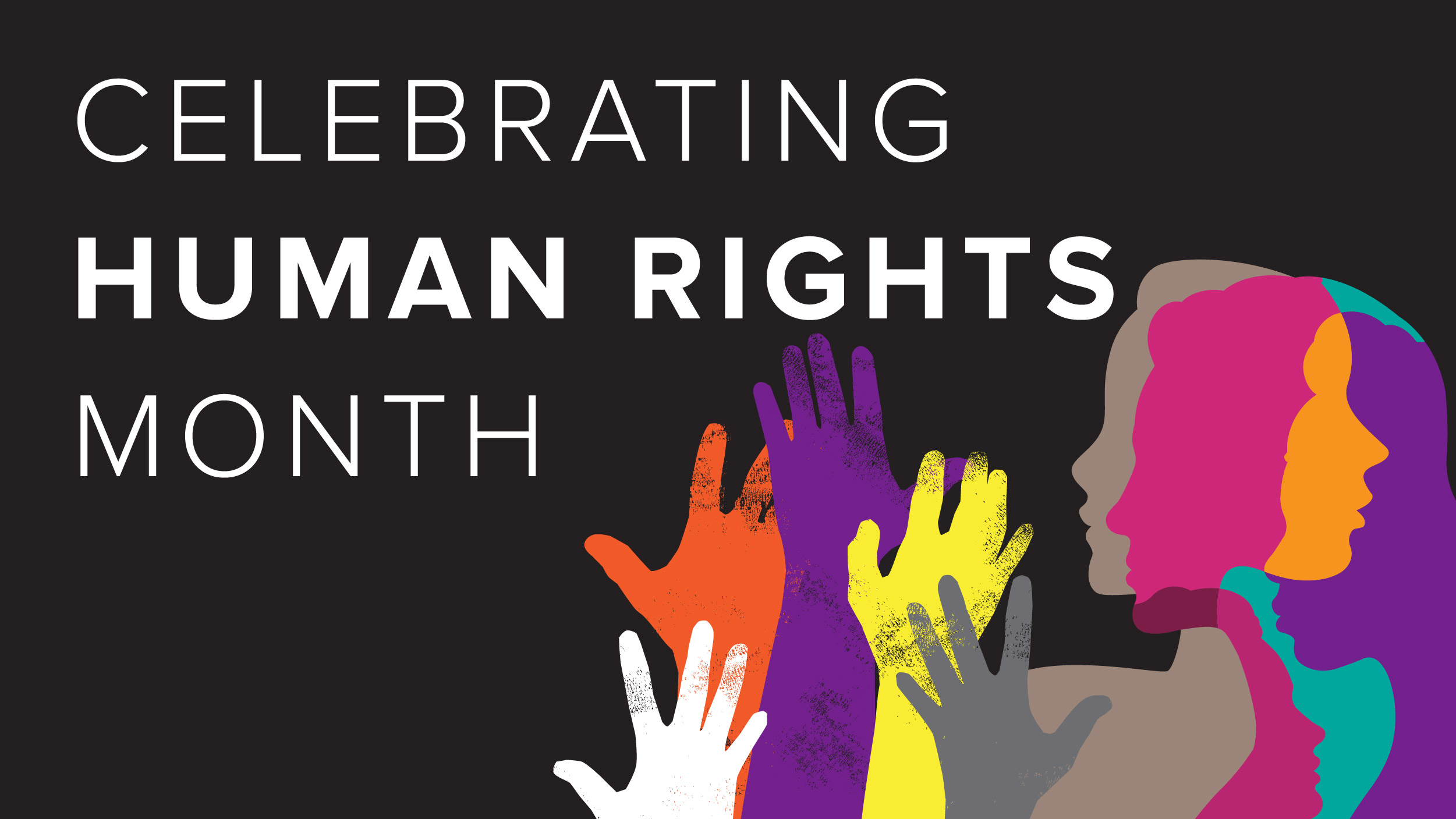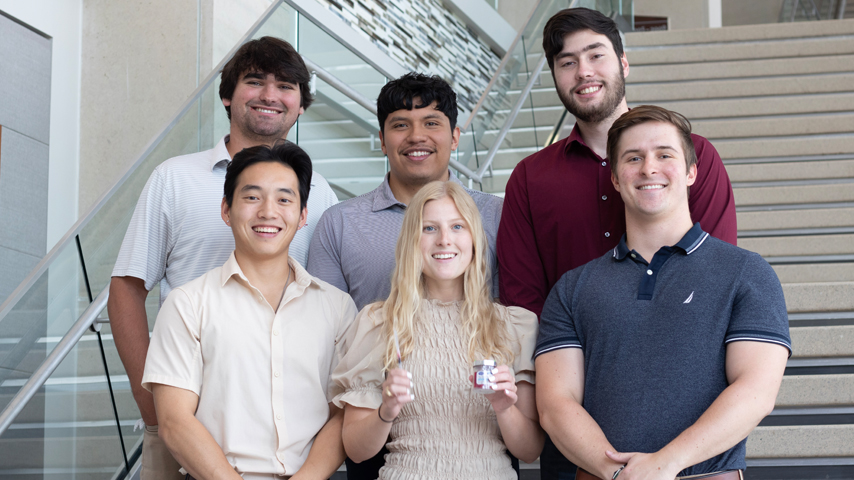ASME Student Member Joshua Price Selected by the Society for This Year’s WISE Program
ASME Student Member Joshua Price Selected by the Society for This Year’s WISE Program
Price, who will be graduating from the University of California, Berkeley, in December with bachelor’s degrees in both mechanical engineering and molecular and cell biology, expects to begin applying for Ph.D. programs in mechanical and biomedical engineering this fall. He would ultimately like to pursue a career as a medical product entrepreneur, either starting a venture or joining an early-stage company within the next 10 years, he said.
Price saw the WISE internship with ASME as an opportunity to do something unrelated to his career path during his last summer in college. “I elected to do the WISE program instead of a more traditional engineering internship to develop a first-hand understanding of how government operates,” said Price, who noted that policy has been a longtime interest of his. “I have had a fantastic experience and would highly recommend it to engineering students with an interest in policy. Through my WISE internship, I’ve learned that regulation is one of the activities that determines the role that technology plays in the world.”
As part of their internship, Price and his fellow WISE interns are composing papers on a selected aspect of technology policy. Since Price’s paper focuses on implantable medical device regulation and innovation, he has spent the summer meeting with biomedical experts from agencies and associations including the U.S. Food and Drug Administration, the National Institute of Health, ASME and ANSI in order to learn the intricacies of the FDA regulation process and how the various stakeholders feel that process should change. For example, while the manufacturers of implantable medical devices would prefer FDA to approve devices as quickly as possible so they can efficiently bring new products to market, consumer rights groups seek to tighten regulations to ensure that only products proven to be safe in thorough clinical trials make it to the marketplace. Meanwhile, patient groups would like to have faster access to new treatments for their ailments, but would still want the safety of these treatments to be guaranteed, Price said.
“My paper is focused on how standards, such as those created by ASME, play an important role in how the FDA reviews new implantable medical devices, particularly when they are deciding whether to allow clinical trials,” Price said. “I knew that ASME played an important role in developing industry standards, but I didn’t know about the extensive process behind standards development and how important they are in government regulation. For example, the FDA actually tells medical device manufacturers to follow specific standards developed by ASME and other standards developing organizations. It makes their process more efficient and helps them ensure product safety and effectiveness.”
Price will present his paper, which will include recommendations about how the FDA and standards organizations can work together to speed the development of standards as new technologies evolve, before his fellow 2018 WISE interns, members of the WISE sponsor societies and invited guests on Aug. 2 at the Rayburn House Office Building on Capitol Hill. His paper will be available soon on http://wise-intern.org/journal/index.html.
In addition to preparing their technology policy papers, the WISE interns also spent their time in Washington participating in more than a dozen meetings related to science and technology policy. During the meetings, which were held at locations including NASA headquarters, Rand Corporation and the State Department, the interns learned first-hand how much effort was involved in developing new policy, including communicating with stakeholder groups, examining various policy alternatives, political maneuvering to ensure that policy is passed, and turning legislation into government procedures, Price said. The meetings were organized by Dr. Gil Brown from the University of Massachusetts Lowell, who was this year’s WISE faculty member in residence.
Image Caption Continued: The 2018 class of WISE interns. Dr. Gil Brown (standing, second from left) was this year’s WISE faculty member in residence.
Despite such a full schedule, Price was able to squeeze in a few other activities into his schedule this summer. One unquestionable highlight, he said, was attending one of the last Supreme Court sessions of the summer, during which the Justices ruled on the Trump v. Hawaii travel ban case. “It was incredible to see the most powerful court in the country in action, laying down the law and fiercely arguing for what they believed to be right,” he said. Price also had the opportunity to travel to New York on an ASME-sponsored trip to speak with bioengineering experts at ASME headquarters and meet with Dr. Dion Khodagholy, a professor of electrical engineering from Columbia University, to discuss implantable neural devices.
Reflecting on his experience, Price said he only wished it had been lengthier. “If I could have had more time in D.C., I would have gone to more events and met with more people not immediately relevant to my policy topic,” he said. “There is an astounding amount of activity in Washington, such as near-daily Congressional hearings, events by think tanks, and public engagement sessions at federal departments, not to mention more cultural events like performances, protests, and sights to see. It’s impossible to experience it all in just nine weeks!”
